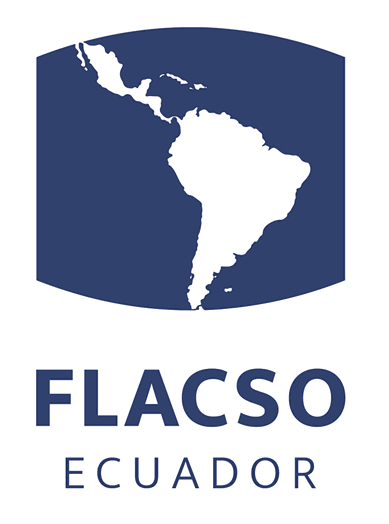Por favor, use este identificador para citar o enlazar este ítem:
http://hdl.handle.net/10469/16387Registro completo de metadatos
| Campo DC | Valor | Lengua/Idioma |
|---|---|---|
| dc.creator | Simonoff, Alejandro | - |
| dc.date | 2020-09 | - |
| dc.date.accessioned | 2020-09-25T21:34:11Z | - |
| dc.date.available | 2020-09-25T21:34:11Z | - |
| dc.identifier.citation | Simonoff, Alejandro. 2020. Acuerdos Mercosur-Unión Europea desde la perspectiva de la política exterior Argentina o The Mercosur-European Union agreements seen from the perspective of Argentina’s foreign policy. Íconos. Revista de Ciencias Sociales, 68/24(3): 57-73. | es_ES |
| dc.identifier.issn | 1390-1249 | - |
| dc.identifier.issn | e-ISSN: 1390-8065 | - |
| dc.identifier.uri | http://hdl.handle.net/10469/16387 | - |
| dc.description | El presente artículo busca comprender, mediante el último impulso al proceso de negociación entre el Mercosur y la Unión Europea llevado adelante durante la Presidencia de Mauricio Macri (2015-2019), cuáles fueron los rasgos fundamentales de la estrategia de relacionamiento externo del Gobierno conservador argentino. Para ello, se ha utilizado una metodología cualitativa recurriendo a fuentes oficiales, reportajes y notas periodísticas que permitieron entrever el proceso de negociación. Se ha podido concluir que además de la voluntad argentina para que la llegada del acuerdo fuese posible, debió producirse el cierre del ciclo progresista, sobre todo desde la destitución de Dilma Rousseff, hecho que puso en sintonía al Mercosur para llevarlo adelante. | es_ES |
| dc.description | The present article attempts to understand the central features of the foreign strategy of Mauricio Macri´s conservative Argentinian government (2015-2019). A close scrutiny of the final drive to successfully conclude negotiations between Mercosur and the European Union during the closing stages of Mr.Macri´s administration is performed. A qualitative method has been used, based on a detailed inspection of official sources, press reports and news stories covering the talks. It is possible to conclude that besides the Argentinian decision to go ahead with the talks and bring them to a positive conclusion, it was also necessary for the “Progressive” cycle in regional politics, to come to an end. | es_ES |
| dc.format | p. 57-73 | es_ES |
| dc.language | spa | es_ES |
| dc.publisher | Quito, Ecuador : Flacso Ecuador | es_ES |
| dc.rights | openAccess | es_ES |
| dc.rights | Atribución-NoComercial-SinDerivadas 3.0 Ecuador | * |
| dc.rights.uri | http://creativecommons.org/licenses/by-nc-nd/3.0/ec/ | * |
| dc.subject | ARGENTINA | es_ES |
| dc.subject | AUTONOMÍA | es_ES |
| dc.subject | MERCOSUR | es_ES |
| dc.subject | POLÍTICA EXTERIOR | es_ES |
| dc.subject | UNIÓN EUROPEA | es_ES |
| dc.subject | GOBIERNO | es_ES |
| dc.title | Acuerdos Mercosur-Unión Europea desde la perspectiva de la política exterior Argentina | es_ES |
| dc.title.alternative | The Mercosur-European Union agreements seen from the perspective of Argentina’s foreign policy | es_ES |
| dc.type | article | es_ES |
| dc.tipo.spa | Artículo | es_ES |
| Aparece en las colecciones: | Revista Íconos No. 68, sep. 2020 | |
Archivos en este ítem:
| Archivo | Descripción | Tamaño | Formato | |
|---|---|---|---|---|
| RFLACSO-Ic68-04-Simonoff.pdf | Artículo - revista | 303,48 kB | Adobe PDF |  Visualizar/Abrir |
Este ítem está sujeto a una licencia Attribution NonComercial ShareAlike (CC BY-NC-SA 4.0)
Licencia Creative Commons



